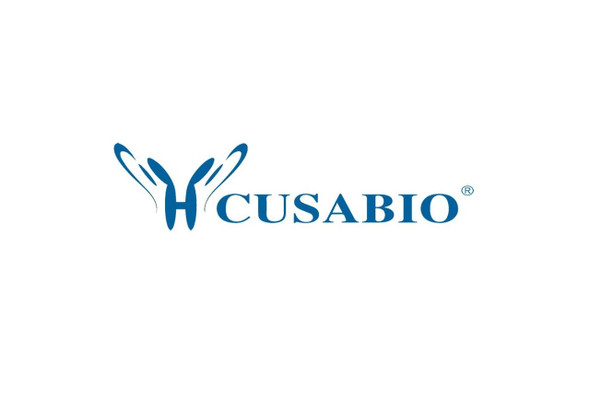Cusabio Human Recombinants
Recombinant Human Glypican-1 (GPC1), partial | CSB-EP009703HU1
- SKU:
- CSB-EP009703HU1
- Availability:
- 3 - 7 Working Days
Description
Recombinant Human Glypican-1 (GPC1), partial | CSB-EP009703HU1 | Cusabio
Alternative Name(s):
Gene Names: GPC1
Research Areas: Cancer
Organism: Homo sapiens (Human)
AA Sequence: GCGNPKVNPQGPGPEEKRRRGKLAPRERPPSGTLEKLVSEAKAQLRDVQDFWISLPGTLCSEKMALSTASDDRCWNGMARGRYLPEVMGDGLANQINNPEVEVDITKPDMTIRQQIMQLKIMTNRLRSAYNGNDVDFQDASDDGSGSGSGDGCLDDLCSRKVSRKSSSSRTPLTHALPGLSEQEGQKTS
Source: E.coli
Tag Info: N-terminal 10xHis-GST-tagged and C-terminal Myc-tagged
Expression Region: 342-530aa
Sequence Info: Partial
MW: 55.7 kDa
Purity: Greater than 85% as determined by SDS-PAGE.
Relevance: Cell surface proteoglycan that bears heparan sulfate. Binds, via the heparan sulfate side chains, alpha-4 (V) collagen and participates in Schwann cell myelination (By similarity). May act as a catalyst in increasing the rate of conversion of prion protein PRPN(C) to PRNP(Sc) via associating (via the heparan sulfate side chains) with both forms of PRPN, targeting them to lipid rafts and facilitating their interaction. Required for proper skeletal muscle differentiation by sequestering FGF2 in lipid rafts preventing its binding to receptors (FGFRs) and inhibiting the FGF-mediated signaling.
Reference: "Suppression of amyloid beta A11 antibody immunoreactivity by vitamin C: possible role of heparan sulfate oligosaccharides derived from glypican-1 by ascorbate-induced, nitric oxide (NO)-catalyzed degradation." Cheng F., Cappai R., Ciccotosto G.D., Svensson G., Multhaup G., Fransson L.A., Mani K. J. Biol. Chem. 286:27559-27572(2011)
Storage: The shelf life is related to many factors, storage state, buffer ingredients, storage temperature and the stability of the protein itself. Generally, the shelf life of liquid form is 6 months at -20?/-80?. The shelf life of lyophilized form is 12 months at -20?/-80?.
Notes: Repeated freezing and thawing is not recommended. Store working aliquots at 4? for up to one week.
Function:
Involvement in disease:
Subcellular Location:
Protein Families:
Tissue Specificity:
Paythway:
Form: Liquid or Lyophilized powder
Buffer: If the delivery form is liquid, the default storage buffer is Tris/PBS-based buffer, 5%-50% glycerol. If the delivery form is lyophilized powder, the buffer before lyophilization is Tris/PBS-based buffer, 6% Trehalose, pH 8.0.
Reconstitution: We recommend that this vial be briefly centrifuged prior to opening to bring the contents to the bottom. Please reconstitute protein in deionized sterile water to a concentration of 0.1-1.0 mg/mL.We recommend to add 5-50% of glycerol (final concentration) and aliquot for long-term storage at -20?/-80?. Our default final concentration of glycerol is 50%. Customers could use it as reference.
Uniprot ID: P35052
HGNC Database Link: N/A
UniGene Database Link: N/A
KEGG Database Link: N/A
STRING Database Link: N/A
OMIM Database Link: N/A









